afterLoad (456.22KB) (4.38ms)
afterInitialise (1.27MB) (23.61ms)
afterRoute (870.3KB) (9.16ms)
beforeRenderComponent com_tags (20.38KB) (586μs)
afterRenderComponent com_tags (1.84MB) (97.26ms)
afterDispatch (25.26KB) (5.52ms)
beforeRenderRawModule mod_articles_category (READ MORE...) (372.12KB) (13.74ms)
Before Access::preloadComponents (all components) (56.7KB) (3.55ms)
After Access::preloadComponents (all components) (103.05KB) (2.66ms)
Before Access::getAssetRules (id:8 name:com_content) (840B) (20μs)
After Access::getAssetRules (id:8 name:com_content) (7.05KB) (40μs)
afterRenderRawModule mod_articles_category (READ MORE...) (6.33KB) (104ms)
beforeRenderRawModule mod_tags_popular (Search) (4.81KB) (28μs)
afterRenderRawModule mod_tags_popular (Search) (1.84KB) (51.36ms)
beforeRenderRawModule mod_custom (Remember to download Heart Healthy Seniors) (816B) (32μs)
afterRenderRawModule mod_custom (Remember to download Heart Healthy Seniors) (4.86KB) (726μs)
beforeRenderRawModule mod_custom (Get additionel and more detailed knowledge ) (752B) (18μs)
afterRenderRawModule mod_custom (Get additionel and more detailed knowledge ) (1.67KB) (33μs)
beforeRenderRawModule mod_custom (BOOST YOUR IMMUNE DEFENSE) (608B) (11μs)
afterRenderRawModule mod_custom (BOOST YOUR IMMUNE DEFENSE) (928B) (22μs)
beforeRenderRawModule mod_custom (Are you taking supplements) (736B) (9μs)
afterRenderRawModule mod_custom (Are you taking supplements) (1.03KB) (20μs)
beforeRenderRawModule mod_custom (Antiaging) (720B) (8μs)
afterRenderRawModule mod_custom (Antiaging) (1.02KB) (19μs)
beforeRenderRawModule mod_custom (Exercise) (720B) (9μs)
afterRenderRawModule mod_custom (Exercise) (1.02KB) (17μs)
beforeRenderRawModule mod_custom (Check this before you buy a Q10 product) (752B) (9μs)
afterRenderRawModule mod_custom (Check this before you buy a Q10 product) (944B) (19μs)
beforeRenderRawModule mod_custom (Chronic fatigue tied Alan to his bed but Q10 capsules saved him:) (245.53KB) (6.28ms)
afterRenderRawModule mod_custom (Chronic fatigue tied Alan to his bed but Q10 capsules saved him:) (960B) (40μs)
beforeRenderModule mod_custom (Chronic fatigue tied Alan to his bed but Q10 capsules saved him:) (768B) (4μs)
afterRenderModule mod_custom (Chronic fatigue tied Alan to his bed but Q10 capsules saved him:) (1.3KB) (73μs)
beforeRenderRawModule mod_custom (Cholesterol-lowering without side effects:) (368B) (14μs)
afterRenderRawModule mod_custom (Cholesterol-lowering without side effects:) (2.19KB) (24μs)
beforeRenderModule mod_custom (Cholesterol-lowering without side effects:) (752B) (2μs)
afterRenderModule mod_custom (Cholesterol-lowering without side effects:) (1.28KB) (31μs)
beforeRenderModule mod_articles_category (READ MORE...) (21.32KB) (2.34ms)
afterRenderModule mod_articles_category (READ MORE...) (1.25KB) (40μs)
beforeRenderModule mod_tags_popular (Search) (5.17KB) (12μs)
afterRenderModule mod_tags_popular (Search) (1.27KB) (23μs)
beforeRenderModule mod_custom (Remember to download Heart Healthy Seniors) (1.17KB) (10μs)
afterRenderModule mod_custom (Remember to download Heart Healthy Seniors) (1.3KB) (22μs)
beforeRenderModule mod_custom (Get additionel and more detailed knowledge ) (368B) (9μs)
afterRenderModule mod_custom (Get additionel and more detailed knowledge ) (1.3KB) (21μs)
beforeRenderModule mod_custom (BOOST YOUR IMMUNE DEFENSE) (224B) (8μs)
afterRenderModule mod_custom (BOOST YOUR IMMUNE DEFENSE) (1.28KB) (21μs)
beforeRenderModule mod_custom (Are you taking supplements) (352B) (8μs)
afterRenderModule mod_custom (Are you taking supplements) (1.28KB) (21μs)
beforeRenderModule mod_custom (Antiaging) (336B) (9μs)
afterRenderModule mod_custom (Antiaging) (1.27KB) (21μs)
beforeRenderModule mod_custom (Exercise) (336B) (8μs)
afterRenderModule mod_custom (Exercise) (1.25KB) (21μs)
beforeRenderModule mod_custom (Check this before you buy a Q10 product) (352B) (9μs)
afterRenderModule mod_custom (Check this before you buy a Q10 product) (1.28KB) (21μs)
beforeRenderRawModule mod_menu (Main menu-US) (20.94KB) (597μs)
afterRenderRawModule mod_menu (Main menu-US) (152.66KB) (3.72ms)
beforeRenderModule mod_menu (Main menu-US) (720B) (5μs)
afterRenderModule mod_menu (Main menu-US) (4.36KB) (57μs)
beforeRenderRawModule mod_languages (Sprogskift) (3.44KB) (17μs)
afterRenderRawModule mod_languages (Sprogskift) (32.27KB) (3.98ms)
beforeRenderModule mod_languages (Sprogskift) (720B) (5μs)
afterRenderModule mod_languages (Sprogskift) (5.31KB) (21μs)
beforeRenderRawModule mod_finder () (6.34KB) (11μs)
afterRenderRawModule mod_finder () (214.16KB) (6.92ms)
beforeRenderModule mod_finder () (704B) (4μs)
afterRenderModule mod_finder () (5.79KB) (33μs)
beforeRenderRawModule mod_custom () (6.62KB) (138μs)
afterRenderRawModule mod_custom () (23.13KB) (2.91ms)
beforeRenderModule mod_custom () (704B) (5μs)
afterRenderModule mod_custom () (1.23KB) (54μs)
beforeRenderRawModule mod_menu (Main menu-US) (5.07KB) (103μs)
afterRenderRawModule mod_menu (Main menu-US) (5.8KB) (3.56ms)
beforeRenderModule mod_menu (Main menu-US) (720B) (4μs)
afterRenderModule mod_menu (Main menu-US) (1.25KB) (49μs)
beforeRenderRawModule mod_languages (Sprogskift Mobil) (912B) (17μs)
afterRenderRawModule mod_languages (Sprogskift Mobil) (3.89KB) (1.68ms)
beforeRenderModule mod_languages (Sprogskift Mobil) (720B) (5μs)
afterRenderModule mod_languages (Sprogskift Mobil) (1.27KB) (39μs)
beforeRenderRawModule mod_finder () (2.3KB) (10μs)
afterRenderRawModule mod_finder () (21.04KB) (2.5ms)
beforeRenderModule mod_finder () (704B) (5μs)
afterRenderModule mod_finder () (1.23KB) (51μs)
beforeRenderRawModule mod_custom () (8.66KB) (190μs)
afterRenderRawModule mod_custom () (904B) (144μs)
beforeRenderModule mod_custom () (704B) (3μs)
afterRenderModule mod_custom () (2.43KB) (26μs)
beforeRenderRawModule mod_custom () (688B) (84μs)
afterRenderRawModule mod_custom () (896B) (1.5ms)
beforeRenderModule mod_custom () (704B) (3μs)
afterRenderModule mod_custom () (2.71KB) (26μs)
afterRender (300.21KB) (11.8ms)
| 1 x afterRenderRawModule mod_articles_category (READ MORE...) (6.33KB) (28.27%) | 103.94ms |
| 1 x afterRenderComponent com_tags (1.84MB) (26.45%) | 97.26ms |
| 1 x afterRenderRawModule mod_tags_popular (Search) (1.84KB) (13.97%) | 51.36ms |
| 1 x afterInitialise (1.27MB) (6.42%) | 23.61ms |
| 1 x beforeRenderRawModule mod_articles_category (READ MORE...) (372.12KB) (3.74%) | 13.74ms |
| 1 x afterRender (300.21KB) (3.21%) | 11.80ms |
| 1 x afterRoute (870.3KB) (2.49%) | 9.16ms |
| 1 x afterRenderRawModule mod_finder () (214.16KB) (1.88%) | 6.92ms |
| 1 x beforeRenderRawModule mod_custom (Chronic fatigue tied Alan to his bed but Q10 capsules saved him:) (245.53KB) (1.71%) | 6.28ms |
| 1 x afterDispatch (25.26KB) (1.5%) | 5.52ms |
| 1 x afterLoad (456.22KB) (1.19%) | 4.38ms |
| 1 x afterRenderRawModule mod_languages (Sprogskift) (32.27KB) (1.08%) | 3.98ms |
| 1 x afterRenderRawModule mod_menu (Main menu-US) (152.66KB) (1.01%) | 3.72ms |
| 1 x afterRenderRawModule mod_menu (Main menu-US) (5.8KB) (0.97%) | 3.56ms |
| 1 x Before Access::preloadComponents (all components) (56.7KB) (0.96%) | 3.55ms |
| 1 x afterRenderRawModule mod_custom () (23.13KB) (0.79%) | 2.91ms |
| 1 x After Access::preloadComponents (all components) (103.05KB) (0.72%) | 2.66ms |
| 1 x afterRenderRawModule mod_finder () (21.04KB) (0.68%) | 2.50ms |
| 1 x beforeRenderModule mod_articles_category (READ MORE...) (21.32KB) (0.64%) | 2.34ms |
| 1 x afterRenderRawModule mod_languages (Sprogskift Mobil) (3.89KB) (0.46%) | 1.68ms |
| 1 x afterRenderRawModule mod_custom () (896B) (0.41%) | 1.50ms |
| 1 x afterRenderRawModule mod_custom (Remember to download Heart Healthy Seniors) (4.86KB) (0.2%) | 726μs |
| 1 x beforeRenderRawModule mod_menu (Main menu-US) (20.94KB) (0.16%) | 597μs |
| 1 x beforeRenderComponent com_tags (20.38KB) (0.16%) | 586μs |
| 1 x beforeRenderRawModule mod_custom () (8.66KB) (0.05%) | 190μs |
| 1 x afterRenderRawModule mod_custom () (904B) (0.04%) | 144μs |
| 1 x beforeRenderRawModule mod_custom () (6.62KB) (0.04%) | 138μs |
| 1 x beforeRenderRawModule mod_menu (Main menu-US) (5.07KB) (0.03%) | 103μs |
| 1 x beforeRenderRawModule mod_custom () (688B) (0.02%) | 84μs |
| 1 x afterRenderModule mod_custom (Chronic fatigue tied Alan to his bed but Q10 capsules saved him:) (1.3KB) (0.02%) | 73μs |
| 1 x afterRenderModule mod_menu (Main menu-US) (4.36KB) (0.02%) | 57μs |
| 1 x afterRenderModule mod_custom () (1.23KB) (0.01%) | 54μs |
| 1 x afterRenderModule mod_finder () (1.23KB) (0.01%) | 51μs |
| 1 x afterRenderModule mod_menu (Main menu-US) (1.25KB) (0.01%) | 49μs |
| 1 x After Access::getAssetRules (id:8 name:com_content) (7.05KB) (0.01%) | 40μs |
| 1 x afterRenderRawModule mod_custom (Chronic fatigue tied Alan to his bed but Q10 capsules saved him:) (960B) (0.01%) | 40μs |
| 1 x afterRenderModule mod_articles_category (READ MORE...) (1.25KB) (0.01%) | 40μs |
| 1 x afterRenderModule mod_languages (Sprogskift Mobil) (1.27KB) (0.01%) | 39μs |
| 1 x afterRenderRawModule mod_custom (Get additionel and more detailed knowledge ) (1.67KB) (0.01%) | 33μs |
| 1 x afterRenderModule mod_finder () (5.79KB) (0.01%) | 33μs |
| 1 x beforeRenderRawModule mod_custom (Remember to download Heart Healthy Seniors) (816B) (0.01%) | 32μs |
| 1 x afterRenderModule mod_custom (Cholesterol-lowering without side effects:) (1.28KB) (0.01%) | 31μs |
| 1 x beforeRenderRawModule mod_tags_popular (Search) (4.81KB) (0.01%) | 28μs |
| 1 x afterRenderModule mod_custom () (2.43KB) (0.01%) | 26μs |
| 1 x afterRenderModule mod_custom () (2.71KB) (0.01%) | 26μs |
| 1 x afterRenderRawModule mod_custom (Cholesterol-lowering without side effects:) (2.19KB) (0.01%) | 24μs |
| 1 x afterRenderModule mod_tags_popular (Search) (1.27KB) (0.01%) | 23μs |
| 1 x afterRenderRawModule mod_custom (BOOST YOUR IMMUNE DEFENSE) (928B) (0.01%) | 22μs |
| 1 x afterRenderModule mod_custom (Remember to download Heart Healthy Seniors) (1.3KB) (0.01%) | 22μs |
| 1 x afterRenderModule mod_custom (BOOST YOUR IMMUNE DEFENSE) (1.28KB) (0.01%) | 21μs |
| 1 x afterRenderModule mod_custom (Get additionel and more detailed knowledge ) (1.3KB) (0.01%) | 21μs |
| 1 x afterRenderModule mod_custom (Are you taking supplements) (1.28KB) (0.01%) | 21μs |
| 1 x afterRenderModule mod_custom (Antiaging) (1.27KB) (0.01%) | 21μs |
| 1 x afterRenderModule mod_custom (Exercise) (1.25KB) (0.01%) | 21μs |
| 1 x afterRenderModule mod_custom (Check this before you buy a Q10 product) (1.28KB) (0.01%) | 21μs |
| 1 x afterRenderModule mod_languages (Sprogskift) (5.31KB) (0.01%) | 21μs |
| 1 x afterRenderRawModule mod_custom (Are you taking supplements) (1.03KB) (0.01%) | 20μs |
| 1 x Before Access::getAssetRules (id:8 name:com_content) (840B) (0.01%) | 20μs |
| 1 x afterRenderRawModule mod_custom (Antiaging) (1.02KB) (0.01%) | 19μs |
| 1 x afterRenderRawModule mod_custom (Check this before you buy a Q10 product) (944B) (0.01%) | 19μs |
| 1 x beforeRenderRawModule mod_custom (Get additionel and more detailed knowledge ) (752B) (0%) | 18μs |
| 1 x afterRenderRawModule mod_custom (Exercise) (1.02KB) (0%) | 17μs |
| 1 x beforeRenderRawModule mod_languages (Sprogskift) (3.44KB) (0%) | 17μs |
| 1 x beforeRenderRawModule mod_languages (Sprogskift Mobil) (912B) (0%) | 17μs |
| 1 x beforeRenderRawModule mod_custom (Cholesterol-lowering without side effects:) (368B) (0%) | 14μs |
| 1 x beforeRenderModule mod_tags_popular (Search) (5.17KB) (0%) | 12μs |
| 1 x beforeRenderRawModule mod_custom (BOOST YOUR IMMUNE DEFENSE) (608B) (0%) | 11μs |
| 1 x beforeRenderRawModule mod_finder () (6.34KB) (0%) | 11μs |
| 3 x beforeRenderModule mod_custom () (704B) (0%) | 11μs |
| 1 x beforeRenderModule mod_custom (Remember to download Heart Healthy Seniors) (1.17KB) (0%) | 10μs |
| 1 x beforeRenderRawModule mod_finder () (2.3KB) (0%) | 10μs |
| 1 x beforeRenderRawModule mod_custom (Are you taking supplements) (736B) (0%) | 9μs |
| 1 x beforeRenderRawModule mod_custom (Exercise) (720B) (0%) | 9μs |
| 1 x beforeRenderRawModule mod_custom (Check this before you buy a Q10 product) (752B) (0%) | 9μs |
| 1 x beforeRenderModule mod_custom (Get additionel and more detailed knowledge ) (368B) (0%) | 9μs |
| 1 x beforeRenderModule mod_custom (Antiaging) (336B) (0%) | 9μs |
| 2 x beforeRenderModule mod_menu (Main menu-US) (720B) (0%) | 9μs |
| 2 x beforeRenderModule mod_finder () (704B) (0%) | 9μs |
| 1 x beforeRenderModule mod_custom (Check this before you buy a Q10 product) (352B) (0%) | 9μs |
| 1 x beforeRenderModule mod_custom (Exercise) (336B) (0%) | 8μs |
| 1 x beforeRenderRawModule mod_custom (Antiaging) (720B) (0%) | 8μs |
| 1 x beforeRenderModule mod_custom (BOOST YOUR IMMUNE DEFENSE) (224B) (0%) | 8μs |
| 1 x beforeRenderModule mod_custom (Are you taking supplements) (352B) (0%) | 8μs |
| 1 x beforeRenderModule mod_languages (Sprogskift) (720B) (0%) | 5μs |
| 1 x beforeRenderModule mod_languages (Sprogskift Mobil) (720B) (0%) | 5μs |
| 1 x beforeRenderModule mod_custom (Chronic fatigue tied Alan to his bed but Q10 capsules saved him:) (768B) (0%) | 4μs |
| 1 x beforeRenderModule mod_custom (Cholesterol-lowering without side effects:) (752B) (0%) | 2μs |
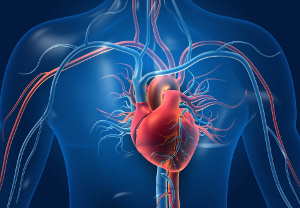 Iron is essential for oxygen transport in the blood and cellular energy production, yet deficiencies are common in patients with chronic heart failure. This additionally impairs their physical capacity and quality of life. Iron deficiency is associated with hospitalization and early death, as highlighted in a review article published by the American College of Cardiology. Heart failure patients should therefore always have their iron status checked. Intravenous iron therapy appears to be most effective for treating iron deficiency in heart failure patients. It is also crucial for these patients to ensure adequate dietary iron intake while being mindful of factors that can limit iron absorption and utilization.
Iron is essential for oxygen transport in the blood and cellular energy production, yet deficiencies are common in patients with chronic heart failure. This additionally impairs their physical capacity and quality of life. Iron deficiency is associated with hospitalization and early death, as highlighted in a review article published by the American College of Cardiology. Heart failure patients should therefore always have their iron status checked. Intravenous iron therapy appears to be most effective for treating iron deficiency in heart failure patients. It is also crucial for these patients to ensure adequate dietary iron intake while being mindful of factors that can limit iron absorption and utilization.








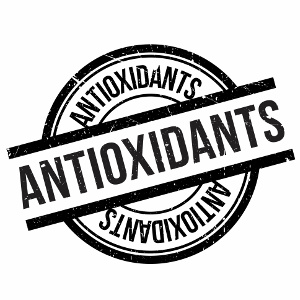 Everyone is affected by electromagnetic radiation from cell phones, device screens, the electricity supply and other electric systems. The brain’s neurons are particularly vulnerable, especially because electromagnetic radiation can increase the neuronal uptake of calcium ions, which makes the neurons overactive and may even cause them to perish. A study published in News Medical Life Sciences shows that too much calcium in the brain increases the risk of Alzheimer’s disease and digital dementia in young individuals. The increased electromagnetic radiation also generates loads of free radicals in the body that can cause oxidative stress and cellular damage because it outperforms the body’s different antioxidants. This was described in an article published in The Journal of Microscopy & Ultrastructure that also mentions how electromagnetic radiation can cause stress, headaches, fatigue, anxiety, and other symptoms.
Everyone is affected by electromagnetic radiation from cell phones, device screens, the electricity supply and other electric systems. The brain’s neurons are particularly vulnerable, especially because electromagnetic radiation can increase the neuronal uptake of calcium ions, which makes the neurons overactive and may even cause them to perish. A study published in News Medical Life Sciences shows that too much calcium in the brain increases the risk of Alzheimer’s disease and digital dementia in young individuals. The increased electromagnetic radiation also generates loads of free radicals in the body that can cause oxidative stress and cellular damage because it outperforms the body’s different antioxidants. This was described in an article published in The Journal of Microscopy & Ultrastructure that also mentions how electromagnetic radiation can cause stress, headaches, fatigue, anxiety, and other symptoms.
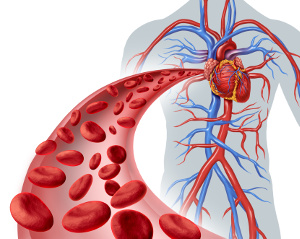
 Most people have experienced a normal headache, while migraines are far more complex. Although the pain can be caused by a number of factors, essential nutrients such as B vitamins, vitamin D, magnesium, fish oil, and coenzyme Q10 may play a vital role according to a review article that is published in Current Pain and Headache Reports. The authors describe how certain nutrients affect underlying mechanisms that may prevent or mitigate different types of headaches.
Most people have experienced a normal headache, while migraines are far more complex. Although the pain can be caused by a number of factors, essential nutrients such as B vitamins, vitamin D, magnesium, fish oil, and coenzyme Q10 may play a vital role according to a review article that is published in Current Pain and Headache Reports. The authors describe how certain nutrients affect underlying mechanisms that may prevent or mitigate different types of headaches. Age-related loss of muscle mass is a natural process and may result in increased feebleness and even disability. Strength training and diet play a major role, and older people need more protein, especially an essential amino acid called leucine. In addition, supplements of vitamin D, omega-3 fatty acids, and probiotics can have a positive impact on muscle mass and muscle strength, according to a review article that is published in Frontiers in Nutrition.
Age-related loss of muscle mass is a natural process and may result in increased feebleness and even disability. Strength training and diet play a major role, and older people need more protein, especially an essential amino acid called leucine. In addition, supplements of vitamin D, omega-3 fatty acids, and probiotics can have a positive impact on muscle mass and muscle strength, according to a review article that is published in Frontiers in Nutrition.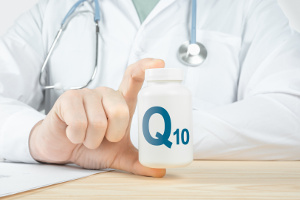 After a COVID-19 infection many people experience chronic symptoms such as fatigue, muscle pain, depression, and sleep disturbances. According to a study that is published in Clinical and Experimental Medicine, supplementing with Q10 and alpha-lipoic acid may help against tiredness and certain other symptoms. The authors describe how Q10 and alpha-lipoic acid support the cellular energy turnover in different ways and serve as antioxidants that protect cells against oxidative stress and cellular damage.
After a COVID-19 infection many people experience chronic symptoms such as fatigue, muscle pain, depression, and sleep disturbances. According to a study that is published in Clinical and Experimental Medicine, supplementing with Q10 and alpha-lipoic acid may help against tiredness and certain other symptoms. The authors describe how Q10 and alpha-lipoic acid support the cellular energy turnover in different ways and serve as antioxidants that protect cells against oxidative stress and cellular damage.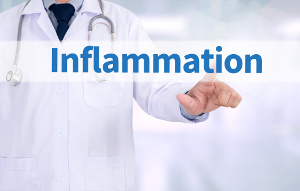
 Q10 plays a crucial role in cellular energy metabolism and serves as an important antioxidant that protects cells. A Q10 deficiency can therefore lead to a wide range of clinical symptoms, including ones affecting the brain, nervous system, and cognitive abilities. In the body, Q10 is synthesized via the same biochemical pathway as cholesterol, and the brain is actually the most cholesterol-rich organ. This highlights a close connection between Q10, cholesterol, and the function of nerve cells. A study published in Free Radical Biology and Medicine shows that a lack of Q10 can negatively affect the shape and function of nerve cells. It's important to note that aging and cholesterol-lowering statins inhibit the body’s own production of Q10.
Q10 plays a crucial role in cellular energy metabolism and serves as an important antioxidant that protects cells. A Q10 deficiency can therefore lead to a wide range of clinical symptoms, including ones affecting the brain, nervous system, and cognitive abilities. In the body, Q10 is synthesized via the same biochemical pathway as cholesterol, and the brain is actually the most cholesterol-rich organ. This highlights a close connection between Q10, cholesterol, and the function of nerve cells. A study published in Free Radical Biology and Medicine shows that a lack of Q10 can negatively affect the shape and function of nerve cells. It's important to note that aging and cholesterol-lowering statins inhibit the body’s own production of Q10.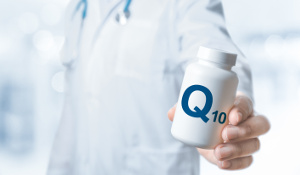
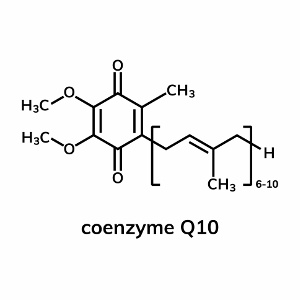 Primary Q10 deficiency is a rare dysfunction where the body’s missing ability to synthesize Q10 can lead to a rare type of nephrotic disease that cannot be treated with medicine. According to a new study that is published in Kidney International, however, it appears that Q10 supplementation can reduce the kidneys’ protein excretion, protect renal function, and lower mortality. Based on their findings, the scientists conclude that all patients with primary Q10 deficiency should ideally receive early and life-long Q10 therapy in order to prevent the disease from progressing and to avoid future organ damage.
Primary Q10 deficiency is a rare dysfunction where the body’s missing ability to synthesize Q10 can lead to a rare type of nephrotic disease that cannot be treated with medicine. According to a new study that is published in Kidney International, however, it appears that Q10 supplementation can reduce the kidneys’ protein excretion, protect renal function, and lower mortality. Based on their findings, the scientists conclude that all patients with primary Q10 deficiency should ideally receive early and life-long Q10 therapy in order to prevent the disease from progressing and to avoid future organ damage.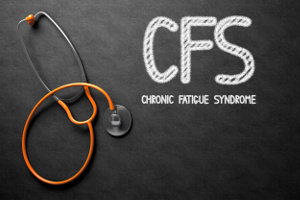 Q10 is a key element in the cellular energy turnover and also serves as a protective antioxidant. The human body is able to make most of its own Q10 but as we grow older, our endogenous Q10 synthesis decreases, and this is also the case with certain diseases and as a result of using specific types of medicine. A large meta-analysis has shown that Q10 supplementation is able to reduce chronic fatigue in healthy individuals as well as in people with diseases. Apparently, taking larger doses for longer periods of time works best for energy levels. It is important to choose a Q10 supplement that has the right quality and comes with documentation to ensure that the Q10 molecules are absorbed properly in the blood and reach the energy-producing powerhouses of the cells.
Q10 is a key element in the cellular energy turnover and also serves as a protective antioxidant. The human body is able to make most of its own Q10 but as we grow older, our endogenous Q10 synthesis decreases, and this is also the case with certain diseases and as a result of using specific types of medicine. A large meta-analysis has shown that Q10 supplementation is able to reduce chronic fatigue in healthy individuals as well as in people with diseases. Apparently, taking larger doses for longer periods of time works best for energy levels. It is important to choose a Q10 supplement that has the right quality and comes with documentation to ensure that the Q10 molecules are absorbed properly in the blood and reach the energy-producing powerhouses of the cells.
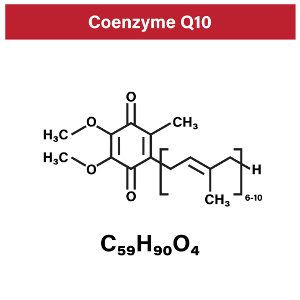 The body uses inflammation as part of its normal immune response to infections and tissue damage. If inflammation becomes chronic, however, it can be extremely dangerous. What happens is that it bombards the body with free radicals. This leads to oxidative stress and increases the risk of cell damage, overweight, and chronic diseases like type 2 diabetes, cardiovascular disease, autoimmune diseases, and different cancer forms. Diet and lifestyle play a major role, and according to a meta-analysis published in Frontiers in Pharmacology, Q10 supplementation can lower several markers of inflammation and oxidative stress.
The body uses inflammation as part of its normal immune response to infections and tissue damage. If inflammation becomes chronic, however, it can be extremely dangerous. What happens is that it bombards the body with free radicals. This leads to oxidative stress and increases the risk of cell damage, overweight, and chronic diseases like type 2 diabetes, cardiovascular disease, autoimmune diseases, and different cancer forms. Diet and lifestyle play a major role, and according to a meta-analysis published in Frontiers in Pharmacology, Q10 supplementation can lower several markers of inflammation and oxidative stress.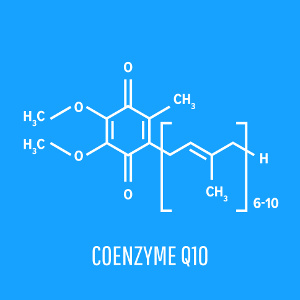 Q10 has a key role in the cellular energy turnover and also serves as an antioxidant that protects the body against oxidative stress. Disruptions in the energy-producing mitochondria in cells and oxidative stress may also be involved in different types of hormone disturbances that affect the thyroid gland, pancreas, sex glands, pituitary gland, and the adrenal glands. In a new review article that is published in Antioxidants, scientists look closer at Q10’s role with particular focus on hyperthyroidism, type 2 diabetes, and poor sperm quality, all of which can be corrected through supplementation.
Q10 has a key role in the cellular energy turnover and also serves as an antioxidant that protects the body against oxidative stress. Disruptions in the energy-producing mitochondria in cells and oxidative stress may also be involved in different types of hormone disturbances that affect the thyroid gland, pancreas, sex glands, pituitary gland, and the adrenal glands. In a new review article that is published in Antioxidants, scientists look closer at Q10’s role with particular focus on hyperthyroidism, type 2 diabetes, and poor sperm quality, all of which can be corrected through supplementation.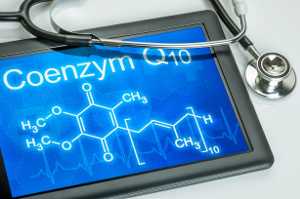 Neurological disorders such as Alzheimer’s disease, dementia, depression, Parkinson’s disease, stroke, migraine, and fibromyalgia are rather common. These conditions are a result of imbalances in the nervous system, and they are often insidious. In a new review article that is published in Frontiers in Neuroscience, researchers have studied Q10’s role in the different neurological disorders. The reason for this is that Q10 is important for cellular energy turnover and serves as an antioxidant that protects the circulatory system and the nerve cells against oxidative damage. As we grow older, our endogenous Q10 synthesis decreases, and certain diseases and medical drugs also impair the body’s Q10 synthesis.
Neurological disorders such as Alzheimer’s disease, dementia, depression, Parkinson’s disease, stroke, migraine, and fibromyalgia are rather common. These conditions are a result of imbalances in the nervous system, and they are often insidious. In a new review article that is published in Frontiers in Neuroscience, researchers have studied Q10’s role in the different neurological disorders. The reason for this is that Q10 is important for cellular energy turnover and serves as an antioxidant that protects the circulatory system and the nerve cells against oxidative damage. As we grow older, our endogenous Q10 synthesis decreases, and certain diseases and medical drugs also impair the body’s Q10 synthesis.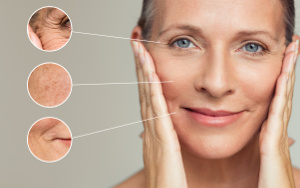
 Poor sperm quality, which is a bit of a taboo, is one of the main causes of involuntary infertility. Evidence suggests that Western diets can impair sperm quality, whereas the Mediterranean diet does the opposite. Vegan diets are somewhat controversial, according to a review article published in International Journal of Molecular Sciences. Previous research has shown that supplementation with selenium, zinc, fish oil, and coenzyme Q10 can improve sperm cell quality.
Poor sperm quality, which is a bit of a taboo, is one of the main causes of involuntary infertility. Evidence suggests that Western diets can impair sperm quality, whereas the Mediterranean diet does the opposite. Vegan diets are somewhat controversial, according to a review article published in International Journal of Molecular Sciences. Previous research has shown that supplementation with selenium, zinc, fish oil, and coenzyme Q10 can improve sperm cell quality. Regular sport is good for you, whereas arduous training and high-performance sport can result in physical injuries, infections, chronic inflammation, and serious diseases due to oxidative stress. This phenomenon occurs as a result of the increased energy turnover, which produces an excess of free radicals that cause damage to cells and tissues. Oxidative stress is also associated with impaired performance, poor restitution, and faster ageing. Our only natural defense against free radicals is the presence of antioxidants, and it is especially things like vitamin C, vitamin E, selenium, zinc, Q10, omega-3 fatty acids, and turmeric that protect against oxidative damage and improve recovery time. According to a review article published in Nutrients, supplements with the right doses of different nutrients can also help boost your physical and mental performance.
Regular sport is good for you, whereas arduous training and high-performance sport can result in physical injuries, infections, chronic inflammation, and serious diseases due to oxidative stress. This phenomenon occurs as a result of the increased energy turnover, which produces an excess of free radicals that cause damage to cells and tissues. Oxidative stress is also associated with impaired performance, poor restitution, and faster ageing. Our only natural defense against free radicals is the presence of antioxidants, and it is especially things like vitamin C, vitamin E, selenium, zinc, Q10, omega-3 fatty acids, and turmeric that protect against oxidative damage and improve recovery time. According to a review article published in Nutrients, supplements with the right doses of different nutrients can also help boost your physical and mental performance.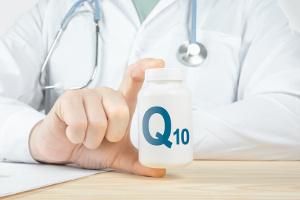
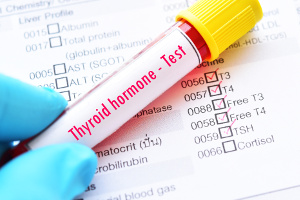

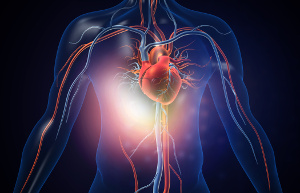 Cardiovascular disease is still the leading cause of death, and both diet and lifestyle are of huge importance. According to a new meta-analysis, fish oil, folic acid, and Q10 are some of nutrients with the greatest potential to lower the risk. It is important to underline that supplements are not likely to make much of a difference if the dosage is too low or if the quality of the preparations is poor.
Cardiovascular disease is still the leading cause of death, and both diet and lifestyle are of huge importance. According to a new meta-analysis, fish oil, folic acid, and Q10 are some of nutrients with the greatest potential to lower the risk. It is important to underline that supplements are not likely to make much of a difference if the dosage is too low or if the quality of the preparations is poor. "After about one week of taking the Q10 supplement I could feel a huge difference," says 23-year old Alan Piccini, who has been suffering from extreme fatigue and muscle aches ever since he was a child.
"After about one week of taking the Q10 supplement I could feel a huge difference," says 23-year old Alan Piccini, who has been suffering from extreme fatigue and muscle aches ever since he was a child. “Taking capsules with co-enzyme Q10 has freed me of the severe side effects of my cholesterol lowering medicine,” Mrs Franken explains.
“Taking capsules with co-enzyme Q10 has freed me of the severe side effects of my cholesterol lowering medicine,” Mrs Franken explains.